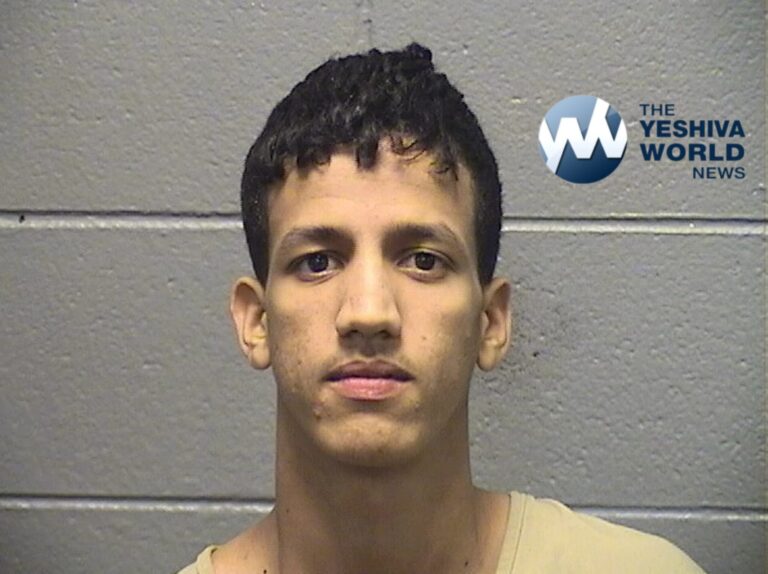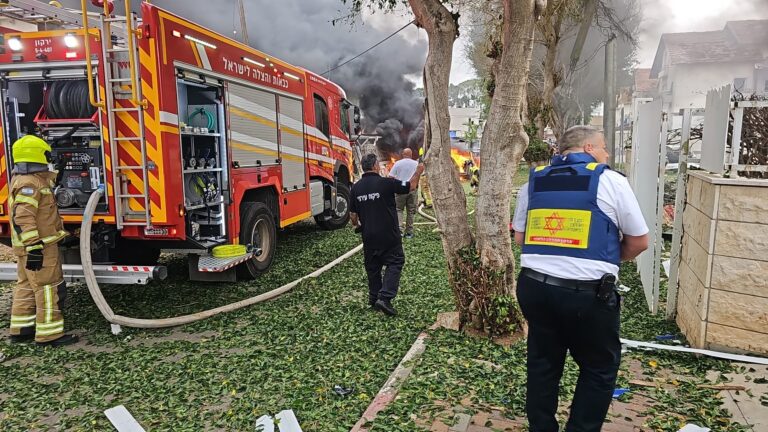 A bloody rampage by an ax-and-knife wielding Afghan refugee has revived concerns in Germany about the country’s ability to cope with an influx of migrants over the past year, some of whom may harbor violent hatred toward the west.
A bloody rampage by an ax-and-knife wielding Afghan refugee has revived concerns in Germany about the country’s ability to cope with an influx of migrants over the past year, some of whom may harbor violent hatred toward the west.
Riaz Khan Ahmadzai, 17, attacked tourists from Hong Kong while traveling on a commuter train near the Bavarian town of Wuerzburg on Monday night, wounding four on board and a local German dog walker outside as he fled. Two of them remained in critical condition Thursday.
The Islamic State group claimed responsibility for the attack and posted a video in which the teen waved a knife and referred to himself as a “soldier of the Islamic State.” Authorities, however, have said that the attacker, who was shot and killed after lunging at police with his weapons, likely acted alone after becoming radicalized.
The nationalist Alternative for Germany, a political party that has surged in popularity on an anti-immigration platform, has seized on the train attack, claiming it was proof that Chancellor Angela Merkel’s policy of opening German borders to refugees had failed.
Georg Pazderski, a member of AfD’s national leadership, said the attack showed Germany was “sitting on a dangerous time bomb” in the shape of thousands of young refugees.
“Our borders need to be secured and asylum-seekers inside the country need to be better monitored,” Pazderski said. “Anything else would be the equivalent of a warm invitation to do the same.”
Germany’s justice minister cautioned against jumping to hasty conclusions after the attack.
“It would be a big mistake to prematurely declare that integration (of migrants) has failed,” Heiko Maas told German daily Bild. He noted that most of the recent extremist attacks in Europe were carried out by people born or raised here.
“Placing all refugees under general suspicion will only make it harder to integrate them,” he said.
Ahmadzai was one of about 60,000 unaccompanied minors who came into Germany last year amid an unprecedented influx of more than 1 million asylum-seekers, mostly from Syria, Iraq and Afghanistan.
Authorities have been providing special care to these minors, many of whom are traumatized by the conflicts in their homelands and by their journey to Europe.
Officials and people who knew Ahmadzai, including his foster parents in the nearby town of Ochsenfurt, struggled to explain how the apparently well-adjusted teenager might have become radicalized.
“He was active on social media, had his page there, but there were no hints of any extremist Islamist thought” until a “cryptic message about the enemies of Islam” posted shortly before the attack, Bavarian criminal police investigator Lothar Koehler said.
Ahmad Mansour, a psychologist and expert on Islamic extremism, said the video published by IS, which was filmed by Ahmadzai in his room in his foster home, suggested that the teenager had held radical beliefs for a long time.
“Radicalization is a process that can be partly visible, partly invisible,” Mansour said.
Anxiety over Germany’s ability to cope with the flood of asylum-seekers surged following a string of sexual assaults and robberies in Cologne during New Year celebrations. The crimes, which prosecutors said were committed largely by foreigners, fueled anti-immigrant sentiment and helped bolster support for AfD in three regional elections.
Concerns have lessened recently, as the number of migrants coming to Germany slowed and warnings of a spike in crime weren’t realized. But with further regional votes coming in the fall, the train attack in Wuerzburg could give AfD fresh support.
At Berlin’s Alexanderplatz square, passers-by were divided on how to rate the train attack.
“Our country, our rules,” said Matthias, a metal worker from the northern city of Stralsund who declined to give his last name for fear of repercussions for talking to a reporter.
“I’ve got no problem with foreigners, but whoever comes over here has to assimilate, otherwise he should be kicked out. And I’ve got no problem voting for AfD if necessary,” he said.
Gisela Kohn, who was out shopping with her husband, said she believed the attack was an isolated incident. “We can’t live in fear and terror all the time,” said Kohn.
Lasse Lindahl, a Dane living in Berlin, said the incident would fuel public unease toward migrants from Muslim countries.
“For every attack, I personally, and the German public, get a little bit scared,” he said.
Speaking to reporters Thursday, the medical director of Wuerzburg’s university hospital said the two men wounded in the attack were still in critical but stable condition.
The 62-year-old father from Hong Kong had improved slightly and doctors were able to bring him out of an artificial coma, said Georg Ertl. He said doctors may wait another 7-10 days before doing the same with the younger man — identified by the German news agency dpa as the boyfriend of the man’s daughter.
After the attack on the Hong Kong family, which also wounded the family’s 58-year-old mother and her daughter, Ahmadzai jumped off the train and wounded a German woman as she walked a dog. She is still being treated but her injuries are no longer considered life-threatening.
(AP)











